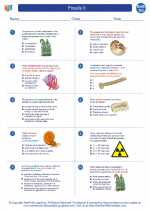Sulfates
Sulfates are chemical compounds containing the sulfate ion (SO42-). They are commonly found in minerals, salts, and even in the atmosphere as aerosols. Sulfates play important roles in various natural processes and have both positive and negative impacts on the environment and human health.
Chemical Composition
The sulfate ion consists of a central sulfur atom surrounded by four oxygen atoms in a tetrahedral arrangement. The chemical formula for the sulfate ion is SO42-.
Natural Sources
Sulfates are naturally present in minerals such as gypsum (calcium sulfate) and barite (barium sulfate). They are also found in seawater, volcanic emissions, and as by-products of bacterial metabolism in soil and water.
Environmental Impact
Sulfates can enter the environment through natural processes as well as human activities such as industrial emissions and agricultural runoff. In the atmosphere, sulfate aerosols can contribute to the formation of acid rain, affecting soil pH and aquatic ecosystems. On the other hand, sulfates also play a role in the formation of sulfate minerals and can act as a nutrient for certain plants.
Health Effects
Exposure to high levels of sulfates, particularly from airborne sources, can have adverse effects on respiratory health. Sulfates can contribute to the formation of fine particulate matter, which can penetrate deep into the lungs and cause or exacerbate respiratory conditions such as asthma and bronchitis.
Study Guide
- Define the chemical composition of sulfates.
- List three natural sources of sulfates.
- Explain the environmental impact of sulfates.
- Discuss the potential health effects of sulfates.
- Compare and contrast the positive and negative aspects of sulfates in the environment.
Understanding the role of sulfates in natural processes and their impact on the environment and human health is important for addressing environmental challenges and promoting sustainable practices.
.


